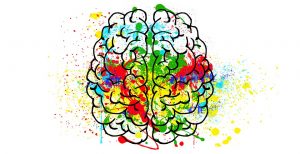
RP 400 Essentials of Distance Education
This course is often the student’s first opportunity to try a distance learning format. It is designed to aid the student through his or her distance education journey. It will help the student know what is expected for distance learning and aid the student in finding the answers needed to accomplish this goal. Finally, this course will prepare the student on how to begin college writing.
AD 580 Cocaine Solutions: Help for Cocaine Abusers and Their Families
This course not only addresses the difficulties experienced by addicts and their families in coping with the devastating financial, emotional, and psychological toll that addiction takes, it also identifies specific sources of help that exist for addicts and their families. Both recovering drug addicts themselves, the authors of the text discuss some of the obstacles to recovery and ways to overcome those obstacles.
AD 581 Counseling Chemically Dependent People with HIV Illness
This course describes a front line clinical treatment of HIV infected chemically dependent persons. It provides a realistic view of the daily responsibilities in working with this population. Specific, in-depth case examples and material give students a solid understanding of how to work more effectively with chemically dependent clients infected with HIV. By concentrating on practical versus theoretical aspects of treatment, this book helps practitioners understand problems in treatment and shows different ways treatment can be administered.
AD 582 Ethnic and Multicultural Drug Abuse: Perspective on Current Research
The text for this course includes summaries of ethnic-minority drug abuse literature and identifies knowledge gaps, highlighting areas in need of more research. The authors, most from African-American, American Indian, Asian Pacific-American, or Hispanic backgrounds, discuss topics related to the research development process, report research findings, and make research recommendations for African-Americans.
AD 583 Managing the Dually Diagnosed Patient: Current Issues and Clinical Approaches
This course is one of the first to deal with the problems of mentally ill substance abusers. This comprehensive course offers a broad view of the theoretical, conceptual, and practical issues involved in caring for dually diagnosed patients.
AD 556 Aggression, Family Violence, and Chemical Dependency
This course provides specific guidelines for the assessment of child abuse, incest, and marital rape, as they are likely to be encountered in a chemical dependency treatment setting. Experts outline treatment suggestions for chemically dependent and co-dependent individuals who are or have been the victims or perpetrators of family violence.
AD 555 Special Problems in Counseling the Chemically Dependent Adolescent
A valuable course to help professionals provide the most successful treatment for chemically dependent teenagers by examining the special conditions associated with adolescent chemical dependency. Complicated problems such as sexual abuse, eating disorders, addictive gambling, and cult membership are discussed in their relationship to the treatment of the adolescent substance abuser. Special cases of the mentally impaired adolescent and the relapsing chemically dependent adolescent are also discussed.
AD 558 Effects of Maternal Alcohol and Drug Abuse on the Newborn
Drug abuse and alcoholism specialists present the latest findings on the effects on the newborn mother’s use of illicit drugs during pregnancy.
AD 563 Preschoolers and Drug Abuse
The course promotes preschool age as the ideal time to apply strategies that will aid the family in building self-esteem, trust, autonomy, and initiative necessary to protect the child from further problems caused by addictive parents. Intervention strategies are presented in a succinct manner, making them easy for practitioners, health officials, government officials, and family members to put into immediate practice.
CP 593 Group Work
Students taking this course need to be familiar with the history and theories of group work. This course will focus on procedures, group dynamics, effective group leadership, member selection, as well as ethical and legal aspects of group work. Different styles of group leadership will be discussed.
AD 570 Group Psychotherapy with Addicted Populations
A powerful course that describes proven strategies for defeating alcohol and drug addiction through the use of group psychotherapy.
AD 590 Clinical Training: 1,000 – Hour Externship
The student will be required to document 1,000 hours of applied clinical observations and experiences to demonstrate knowledge in the field of addictions counseling at the Master Degree level.
TH 510 MA Thesis – 15,000 word minimum
Upon completion of the required credit hours of course work, the student will submit a 15,000-word thesis, demonstrating his or her understanding of the field of their choice. Students will have to demonstrate their grasp of the basic concepts in their fields and are encouraged to do a comparative study of techniques or philosophies. Students will be able to apply towards the thesis some of their homework, if relevant to the proposal.
